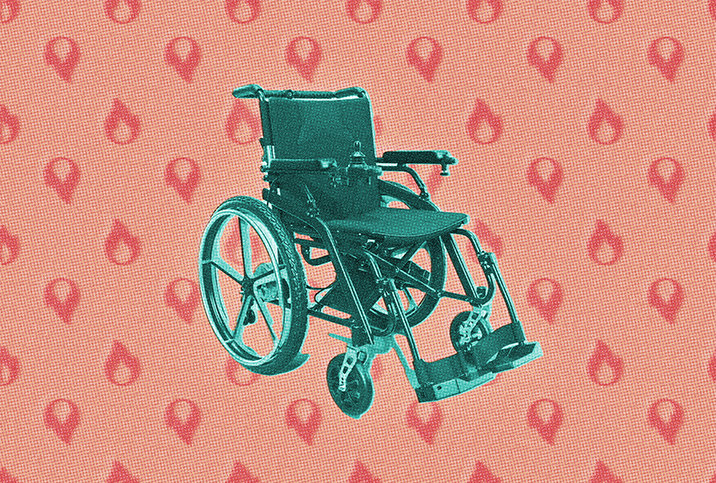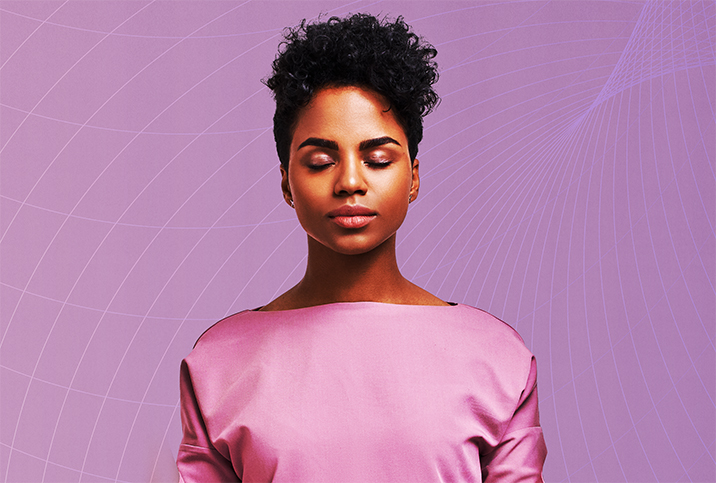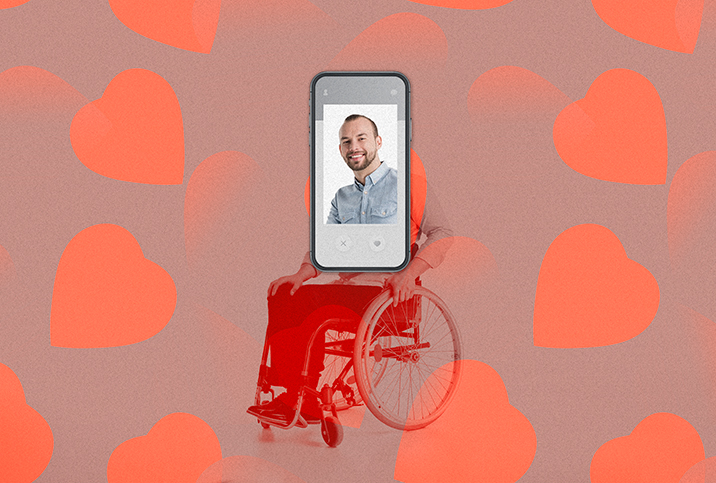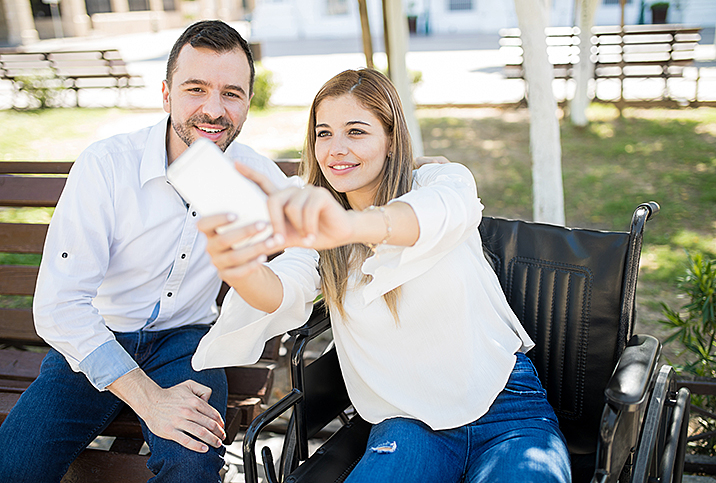Is a Disability Fetish a Harmless Kink or Destructive Objectification?

We all have our kinks, but there is a clear boundary between mutual fetish play and objectifying people without their consent. For disabled people, fetishization is a hidden assailant bubbling under the surface of society.
"Fetishization means seeing a disabled person as an object or a set of physical or intellectual characteristics that bring about sexual gratification," explained Kaley Roosen, Ph.D., a clinical health psychologist in Toronto. "Instead of understanding a person as a whole, complicated individual, they are defined by their disability. So someone may fetishize a person's amputation or stump but fail to connect with the individual connected to that object of fetishization."
The question is: Can a disability fetish ever be a harmless kink or is it inherently destructive for the 61 million disabled adults in the United States?
Manifestation of a disability fetish
"Last year, there was this one guy that wouldn't get the message," said podcaster Roxy Murray, who has multiple sclerosis and lives in London. "He kept sending me messages continuously; no matter how much I blocked, they'd find another account. He would say, 'Please, let me look after you, I love disabled people.'"
Invasive direct messages and comments are a sad reality for anyone using the internet, especially women and people assigned female at birth, but for disabled people, these messages have an even darker undertone. Fetishizers use sweet words to hide gross objectification of disability that usually stereotypes disabled people as helpless.
Murray questioned her inbox intruder directly about his motivations, asking, "Why do you have this fetish over disabled people?" Murray recalled his reply: "He said it's the fact that you can't get away, that he had trauma from being left and he found that disabled people won't leave him, like people with low self-esteem and low mobility."
However, a disability fetish is not limited to seeing disabled people as powerless or incapable. Devotees—a term coined to describe people who are sexually attracted to disability—may be sexually attracted to specific types of disabled people, such as amputees or those who experience muscle spasms or paralysis.
Measuring the impact of a disability fetish
Fetishization shreds self-confidence and makes it harder for disabled people to assert their wants and needs in relationships.
"Over time, it can lead to feeling worthless or of little value," Roosen said. "It may lead to the false feeling that this is the best you can offer in a relationship or that you cannot find someone to love you fully as a human being and individual. Rather, that love and attention are limited to accepting being fetishized."
Combined with sex education that lacks inclusiveness and regularly excludes disabled people, particularly those with intellectual disabilities, fetishization has the potential to poison disabled people's sexual development.
"It can stunt the natural growth of healthy sexuality as healthy sexuality centers around emotional and physical intimacy and feelings of safety," Roosen explained. "A person who is being fetishized may not feel emotionally safe as their worth is dependent on their disability characteristic that is being fetishized."
Sparse representation in mainstream media also contributes to challenges in sexual development for disabled people. Without accurate depictions, some disabled people may be unable to articulate why a partner's fetishization makes them uncomfortable, leaving them vulnerable to further objectification.
"In disabled porn, it's always male-dominated," Murray said. "The disabled person is always male and it's always a woman catering to the needs of a disabled man, but it's very subservient. There's no empowerment behind it."
Fetishization requires disabled people to be cautious in all walks of life, especially as disabled adults in the United Kingdom are nearly twice as likely to be sexually assaulted, and disabled women more than twice as likely to experience domestic abuse, according to government estimates. A 2012 study published in the Lancet showed the rate of sexual abuse soared among the 7 million adults worldwide with an intellectual disability, with 5.5 percent experiencing sexual violence.
Murray has felt the effects of such incidents firsthand.
"As I've gotten more disabled, I don't even do public transport," she said. "I don't feel safe walking down the street from the train station to my house, especially because now I can't run."
The secrecy surrounding fetishization makes it difficult to find the perpetrators before they find you, forcing people with disabilities to question the motives of new people to prevent objectification or harm.
Engaging in the disability fetish
"I dated a couple of people who worked as nurses and it was a total fetish for them: me not working, the idea of them caring for me," said Caterina Enaer, a spiritual teacher and disability wellness advocate who has multisystemic disabilities, including hypermobile Ehlers-Danlos syndrome and myalgic encephalomyelitis (ME). "I remember one man I dated, he would fantasize to me about bathing me when I was having a flare. It made me feel weird, and yes, I needed help showering at the time, but I was not down with him making it into a weird, sexual ego trip."
Like all fetishes and kinks, disabled fetishization is acceptable only when it's a consensual and shared experience.
"If it's consensual and all involved gain something, it can be OK," explained Ness Cooper, a sexologist in the U.K. "If all benefit from it, it could even be a confidence boost. However, this is different from random strangers sending sexual advances nonconsensually."
Although taboo, and potentially harmful if enacted without prior consent and planning, disability fetishes are possible to enjoy safely without inflicting harm. For Enaer, however, it is off the table.
"For me, my relationship with disability is sacred," she said. "At this stage in my life, fetishization does not feel like a mutually beneficial relationship. I would feel like my relationship with my body and culture are not being seen or heard."
Protecting disabled people
Promoting inclusive sex education and improving disabled representation would limit the harm fetishization inflicts.
"You don't have to fetishize disabled people to fancy them," Murray said. "We don't have to be a fetish; you can like people regardless of what they look like. I was sexy before my disability and I'm sexy after it, and I don't need you to tell me that I am."


















